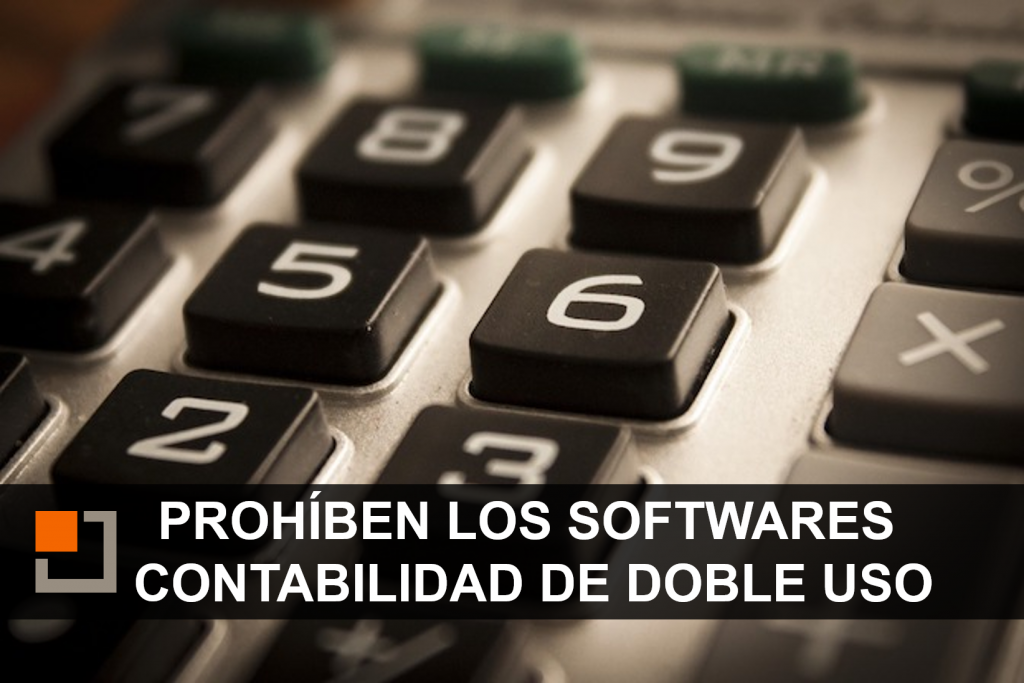
The past October 11, 2021, articles 29.2.j) and 201.bis of the General Tax Law entered into force,which are part of Law 11/2021, of July 9, on measures to prevent and combat tax fraud, published on July 10, 2021.
Despite the fact that most measures to combat tax fraud came into force on July 11, articles 29.2.j) and 201.bis, referring to dual-use accounting software, have done so three months after the publication of the regulations.
What are articles 29.2.j) and 201.bis of the General Tax Law?
Article 29(2)(j)
Article 29.2.j) prohibits the use of dual-use accounting software,which allows altering and committing fraud in the accounting of a company.
Article 29(2)(j) provides “the obligation that the systems and computer programs that support the accounting, billing or management processes of those who carry out economic activities, guarantee the integrity, conservation, accessibility, legibility, traceability and inalterability of the records, without interpolations, omissions or alterations of which the due annotation is not left in the same systems.”
Likewise, it adds that technical specifications may be established that accounting programs must comply with,and that it will be mandatory that they are certified, as well as that they use standard formats for their readability.
In any case, regulatory development is ongoing, so these specifications are not yet known, but we will have to wait for the Regulation to publish them soon to know in detail what requirements the computer programs and systems must meet, as well as the way in which they will have to be certified or accredited.
Article 201(a)
On the other hand, article 201.bis regulates infringements for manufacturing, production, marketing and possession of computer systems that do not meet the specifications required by the applicable regulations.
Paragraph 1 of Article 201.bis considers serious tax infringement those problems that:
- Allow different accounts to be kept.
- Allow not to reflect the entry of transactions, in whole or in part.
- Allow to record transactions other than the annotations made.
- They allow to alter transactions already registered, in breach of the applicable regulations.
- They do not comply with the technical specifications that guarantee the integrity, conservation, accessibility, legibility, traceability and inalterability of the records, as well as their legibility by the competent bodies of the Tax Administration, in the terms of article 29.2.j) of this law.
- Systems manufactured, produced or marketed are not certified, being obliged to do so by regulatory provision.
Paragraphs A, B, C and D will be of direct application from 11 October 2021,while E and F require regulatory development, and will not be mandatory until the approval and entry into force of said regulation.
While the paragraph 2 of article 201.bif refers to the possession of computer software that does not comply with the provisions of article 29.2.j) by users, when they are not duly certified when they must be certified by regulation or when the certified devices have been altered or modified.
This means that users cannot be sanctioned for not complying with this article until the regulatory development of the certification occurs.
Penalties for breaching articles 29.2.j) and 201.bis of the General Tax Law
Penalties for breaching articles 29.2.j) and 201.bis can reach up to 150,000 euros.
- Fine for the manufacture, production and marketing of dual-use software that allows accounting to be manipulated: up to 150,000 euros.
- Fine for using or having a dual-use computer program: up to 50,000 euros.
conclusion
In short, articles 29.2.j) and 201.bis of the General Tax Law require accounting computer software that guarantees the integrity, conservation, accessibility, legibility, traceability and inalterability of the records, with the aim of avoiding tax fraud.








